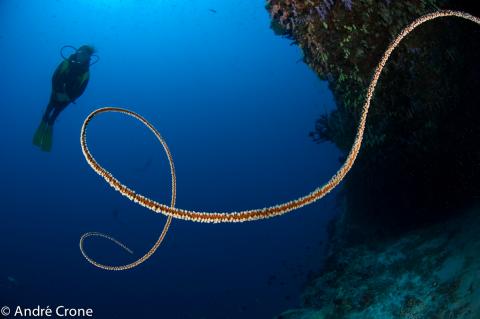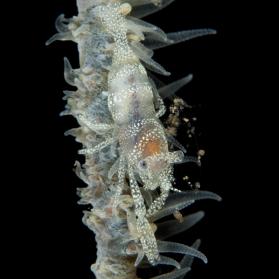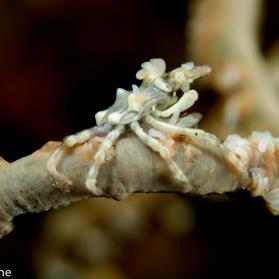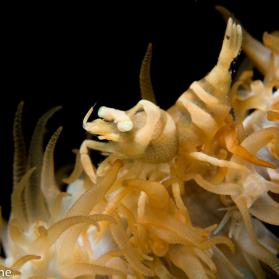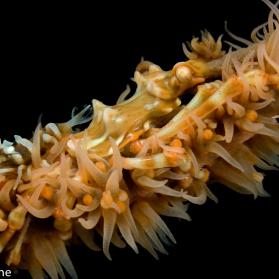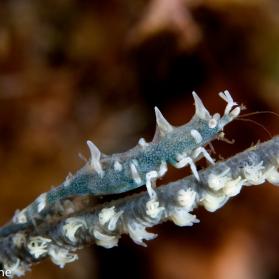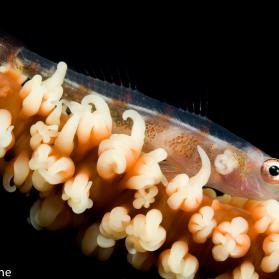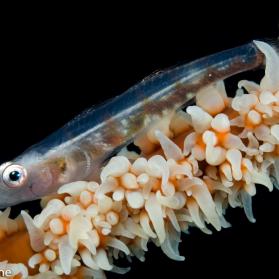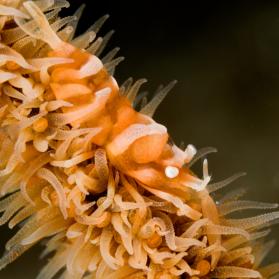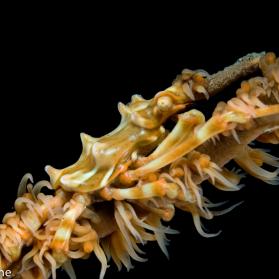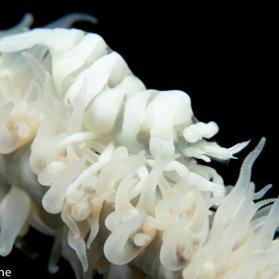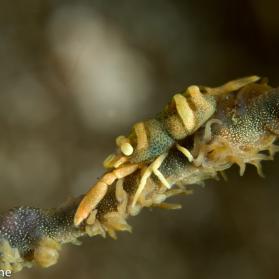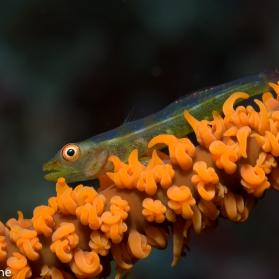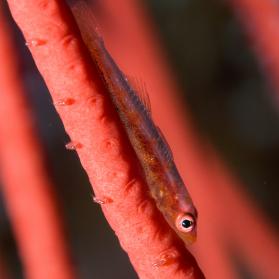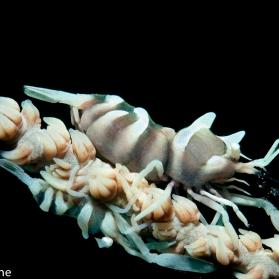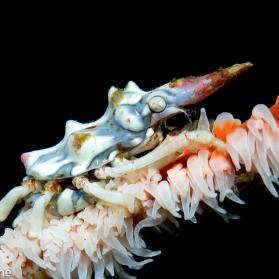We already made a lot of dives in tropical water. Diving the tropics has a magical attraction to us and a lot of other divers. During our tropical dives we already encountered lot of beautiful stuff. This time we see strangely formed “sticks” that move patiently with the swell. Not really exciting objects to stand still with we think. No, we rather swim further to that school off fish or to that beautiful wreck. Until the time we have a dive guide that will stop to watch these “sticks”. He defines them to us as sea whips.
Patiently we wait until he swims further. Until he beckons us and indicates a beautiful small animal that lives on this sea whip. From that moment we could not pass a sea whip without taking a good look. Go along with us along the reef and discover he remarkable life on sea whips.
As coral species, sea whips have a preference for tropically or subtropical water. Sea whips form with other types of black coral the order of Antipatharia. The name: black coral is a bit misleading. Under water black corals are not at all black. Black corals can have several different colours; they frequently are yellow or orange coloured; but also white, greenish etc is possible.
This species of coral got the name black coral thanks to its skeleton. When the coral dies and all living organisms have disappeared, the real skeleton comes forward and that is black. Black coral has become famous because off the frequent use in amulets/hangers. The black coral was thought to have wholesome impact against diseases (In the Greek language anti pathes means; against diseases). Unfortunately this use of black coral has brought the excistence in danger. Fortunately there are already as lot of countries where the black coral has been put on the list of protected animals. So never buy a piece of black koraal to take home; at arrival on your airport this bit of coral (just like other types) will become expensive.

